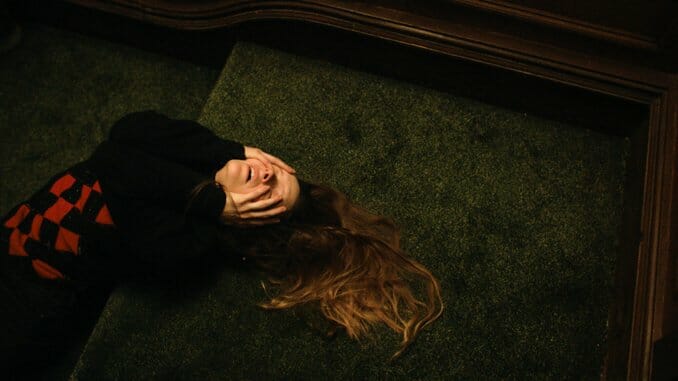Pray for Saint Maud

In the year of our Lord 2021, I should know better than to freight hop an A24 horror hype-train. Maybe it’s the way marketing declares the studio’s pushed genre releases as fresh, new, untested masterpieces, or maybe it’s the cultural assumption that if it’s A24, it must be “good.” Either way, buzz has routinely soured like milk left in the sun once I have the chance to see for myself since about 2018, when Hereditary drove me to laughter at a midnight screening with a crowd who, like me, found Ari Aster’s exercise in derivative pretense comical.
But Saint Maud, on paper, has a great deal going for it, or at least enough to hold my interest hostage: A muscular running time for one, the promise of body horror for another, a throughline of religious psychosis, a woman in the director’s chair (Rose Glass) instead of yet another white dude and a Welsh star (Morfydd Clark). (If there’s a way to my heart, it’s casting the Cymry in your movie.) And maybe, had the film kept its April ‘20 release date, before being pushed to July ‘20—and before eventually being yanked from the calendar altogether—it might’ve remained reasonably satisfying in its minimalism and compelling in its ambiguity on its own terms. It’s a lean tightrope walk along the line dividing reality from delusion, posing questions if not about faith, then about fundamental dilemmas within it. But a year’s passing has done my expectations no favors. The brakes on the hype-train have worn down to the rotors.
-

-

-

-

-

-

-

-

-

-

-

-

-

-

-

-

-

-

-

-

-

-

-

-

-

-

-

-

-

-

-

-

-

-

-

-

-

-

-

-








































